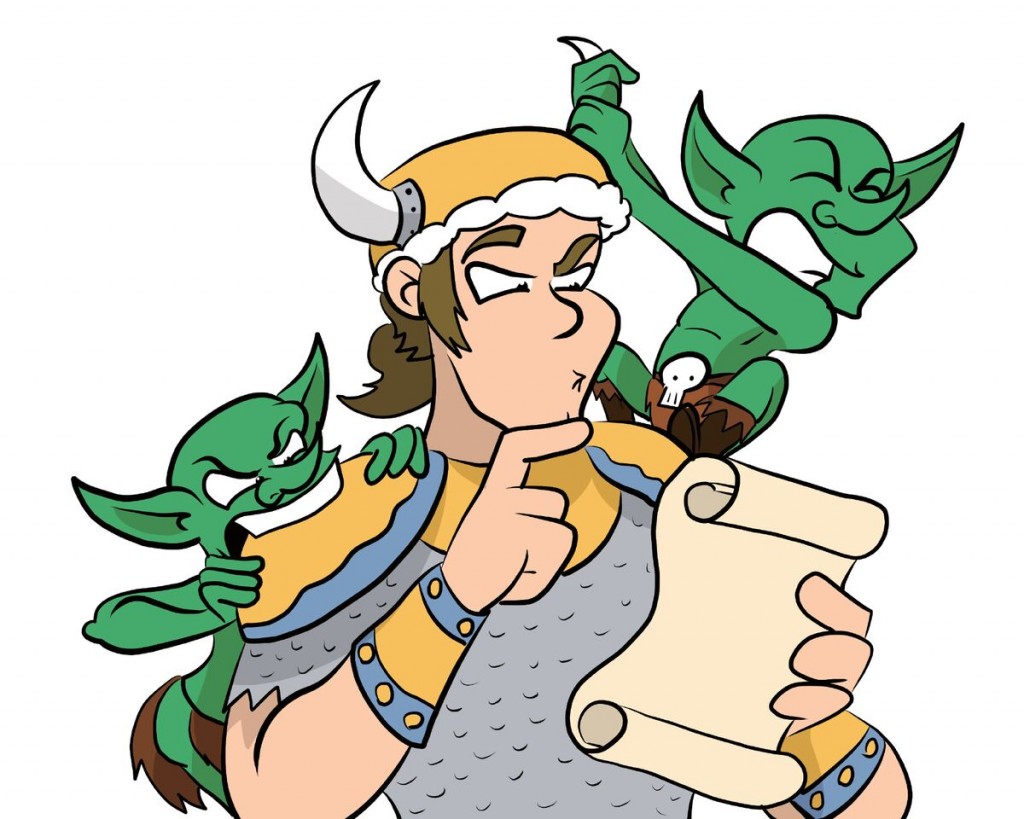
From roleplaying to cruising through dungeons, this game has it all
By Jacey Gibb, Distribution Manager
Welcome to Dinguses and Dragons, a weekly column aiming at demystifying and introducing the game of D&D to new and potential players
One of the (many) great things about Dungeons and Dragons is no two sessions are the same. Even the same pre-made storyline presented to different groups of players can yield wildly different results…
Everyone has a different approach to the same situations. For example, when faced with an obstacle like a locked door, someone playing a rogue character might try to pick the lock, whereas someone playing a fighter might try to break it in. How the players deal with the locked door might affect events later on, and a butterfly effect ripples forward.
A typical D&D session will contain a mixture of four factors, and not always in equal parts. A lot will depend on your Dungeon Master’s (DM’s) style, and hopefully on your group’s preference. Here’s a quick breakdown of the four components in D&D:
Roleplaying: roleplaying refers to the interactions between players, as well as their interactions with the NPCs (non-player characters, always voiced/acted by the DM). During roleplaying segments is where you get the meat and potatoes of the storyline, any plot points, or introductions to new characters. It can be as silly or as serious as your group wants it to be.
Combat: inevitably your group will encounter a situation where they enter initiative or combat. Everyone rolls a 20-sided die, and this determines who acts first, second, third, etc. Combat can be as simple as just hack-and-slashing an enemy, but the really juicy combats have more at stake, like someone who needs to be rescued, or a countdown where the party needs to accomplish a task within a certain number of rounds.
Puzzles: D&D puzzles are incredibly polarizing. The players who love them fucking love them, while the majority of people I’ve played with don’t care for them. My gripe with puzzles is they’re quite rigid, often with a single solution, and if the group doesn’t get that solution right away, you’re just a group of frustrated players working in circles.
Dungeon crawling: this refers to when the party enters a dungeon (or contained environment) and proceeds forward to some endgame. Sometimes the party is looking for a particular item, but they can also just be adventuring in general. Often dungeons will have a specific setting and how it plays out depends on how the players approach it. For example, one room might have a tripwire that alerts enemies of the party’s presence, but if the players inspect for traps beforehand, they might be able to avoid said enemies. Similar to puzzles, dungeon crawling can be somewhat polarizing, as some players see it as too linear rather than open-ended.
Any satisfying session will contain a mixture of these four situations. If you’re feeling disinterested with some of the focuses being given, I’d suggest bringing it up with your DM—in a respectful, courteous way. DMing can be a bottomless time pit, so criticism can feel personal. Acknowledge the work they’re putting in and say what you’ve liked so far, but then also mention the parts you’re not enjoying. You can also talk to the other players individually to see their preferences: if everyone agrees with their favourite/least favourite parts, then great! If your least favourite parts are someone else’s highlight, then it’ll have to be a balancing act.
Another tool I’ve found useful is SurveyMonkey. Have your DM create a survey on the campaign so far, including a 1 to 10 ranking of how much you’ve enjoyed each area. They can also include an open-ended question about what you’d like to experience in the future. This gives an anonymous approach to things, but honestly, straight-forward communication is the best approach for D&D groups. It quickly becomes obvious when one person isn’t enjoying the sessions, so it’s best to communicate why something isn’t working and brainstorm solutions together.

